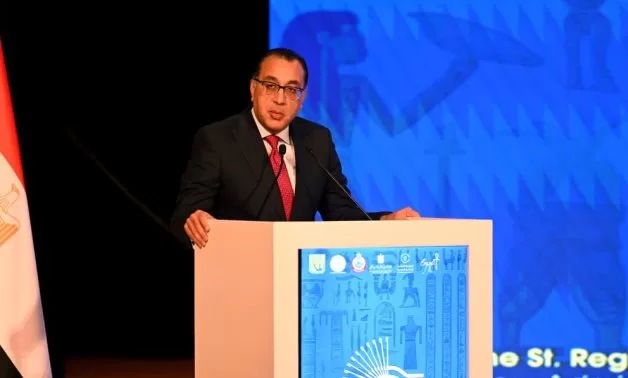Under the patronage of President Abdel Fattah El Sisi, the international health tourism conference was inaugurated on Saturday. Prime Minister Mostafa Madbouli, along with several ministers, governors, and officials, attended the event.
The two-day conference takes place in the prestigious New Administrative Capital (NAC) with the participation of 70 speakers including 22 from France, the UK, South Africa, the UAE, Germany and the US.
In his words, Madbouly highlighted the industry’s primary focus on human health, well-being, and prosperity, supported by various statistics that underscore its economic importance.
He said that the global healthcare market is growing rapidly, surpassing the GDP of major countries like Japan, Germany, and India.
This growth, he said, is driven by advancements in healthcare, technology, and therapeutic techniques, leading to an increase in medical and wellness tourism.
“This surge is fuelled by the aging population, which is creating a higher demand for healthcare services and wellness-related travel,” he said.
He explained that it is projected that the proportion of people aged 65 and older will double by 2050, resulting in a larger gap in healthcare services.
However, he added, this also presents economic opportunities and prospects for foreign direct investment. Egypt is planning to develop its unique tourism and wellness locations, including cities along the Red Sea coast and the Mediterranean coast.
He pointed out that among these exceptional sites are renowned cities like Sharm El-Sheikh, Hurghada, Safaga, and Al-Qusair, nestled along the picturesque Red Sea coast. Moreover, in tandem with these existing treasures, new cities are being constructed along the enchanting Mediterranean coast, namely New Alamein and Ras El Hikma. Furthermore, Egypt boasts numerous other delightful tourist areas awaiting exploration.
Minister of Migration Soha Gendi emphasised the historical significance of Cairo as a prominent hub for medicine and a valuable resource for medical tourism.
She highlighted three fundamental components of the system: the doctor, the patient, and the hospital location. “As responsible parties for Egyptians living abroad, our role is crucial in bridging the gap between overseas doctors and their contributions to the healthcare sector in Egypt,” she said.
In terms of Egyptians abroad, she stated the ministry’s commitment to expanding programs and establishing more contracts for medical tourism initiatives in Egypt.
Furthermore, she mentioned the ministry’s ongoing efforts to attract investments in hospital locations, including the Egyptian Company for Egyptians living abroad, with a focus on establishing tourism as a cornerstone of their operations.
The conference aims of showcasing the immense potential of Egypt in the field of medical tourism. This includes highlighting the exceptional quality of hospital care and treatment available, as well as the state’s expertise in specialized healthcare institutions. These institutions play a key role in implementing extensive therapeutic tourism programs, with a special focus on the hospitals operated by the Health Care Authority in the South Sinai Governorate.
South Sinai Governor Khaled Fouda asserted Egypt is enjoying natural potentials and a unique and special geographical location that must be capitalised on to further make use of these resources in the country.
Fouda underscored the importance of coordinating efforts of different ministries and state bodies to support this tourist product.
The volume of medical tourism hit about 104 million dollars worldwide and is expected to reach 273 billion dollars in 2027, according to him.
Egypt started in the past ten years health initiatives, that were launched by President El Sisi, who is paying a greater interest to the health of the citizen, said the governor.
Director of Program Management (DPM) at the World Health Organisation (WHO) Eastern Mediterranean Regional Office Rana Hajjeh said Egypt has all main potentials to render medical tourism a success.
WHO will work with the Egyptian government to offer technical and consulting support for medical tourism in Egypt, she added.
She added that Egypt won the golden award on leading health sustainability.
Hajjeh said medical tourism is supporting the economy and seeks to develop the health system in the country.
Investment in the medical tourism field is very important, she said, adding the volume of the medical tourism industry is expected to reach 135 billion dollars in the Middle East and Africa by 2026.






Discussion about this post